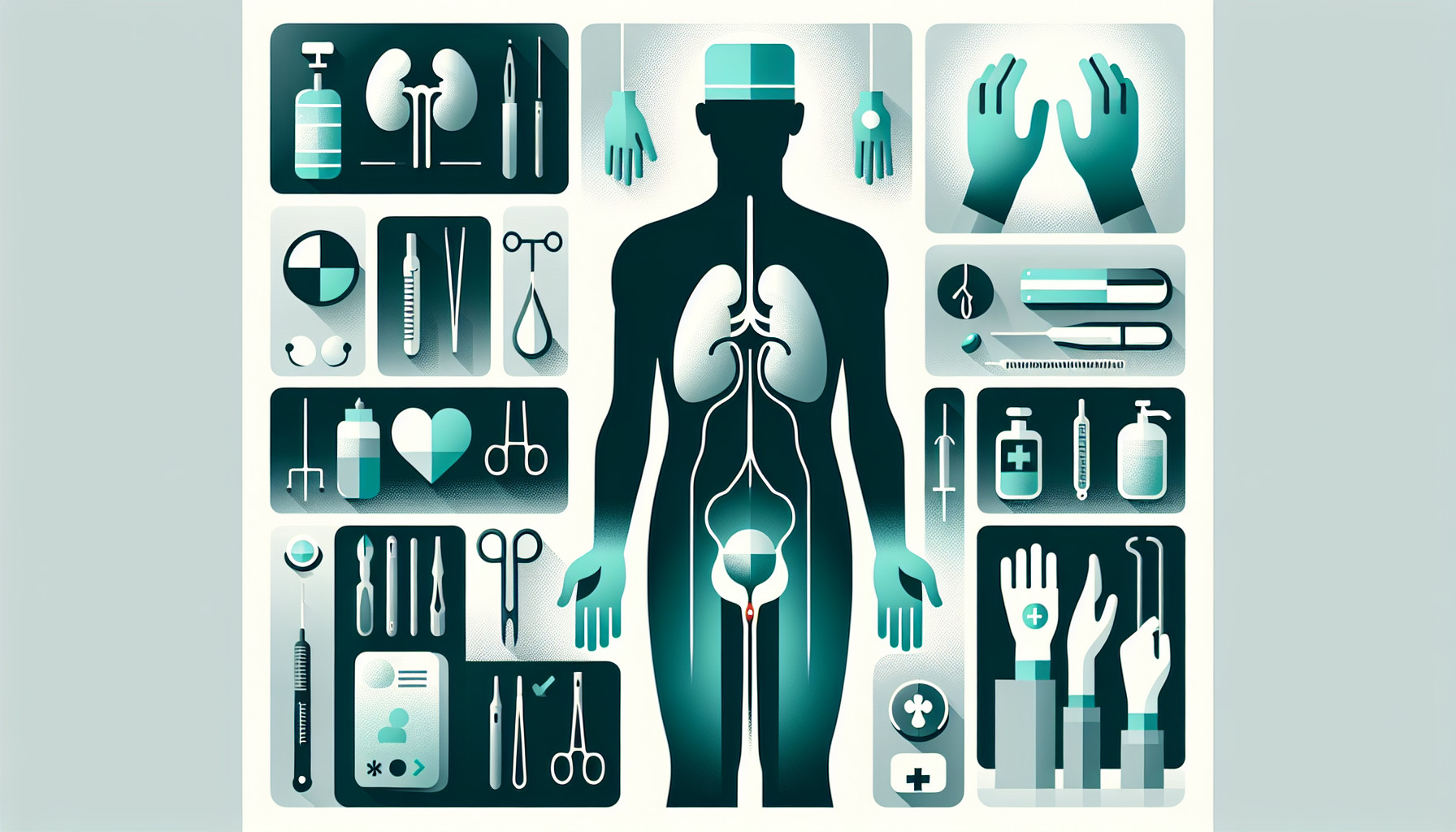Our Summary
The researchers in this paper have put together some recommendations for surgeons performing kidney removals from living donors. They looked at previous studies and data to figure out the best way to assess the donor’s kidney function and anatomy, including which kidney is better to remove. They also analyzed different surgical techniques.
The guidelines they’ve proposed cover the legal rules for kidney donation in France, and underline the importance of thoroughly checking the donor’s health beforehand. They also suggest that surgeons should plan ahead for how the procedure might affect the remaining kidney’s function. If both kidneys are equally healthy and have a similar blood supply, the left kidney should be taken out because it has a longer vein.
The team also highlighted that less invasive surgical methods are better for kidney donors as they recover quicker, feel less pain, and spend less time in the hospital compared to traditional open surgery. These recommendations are intended to help improve how surgeons in France manage kidney donations.
FAQs
- How do the researchers recommend assessing a kidney donor’s health and anatomy before surgery?
- Why do the guidelines suggest removing the left kidney if both kidneys are equally healthy?
- What are the benefits of using less invasive surgical methods for kidney donors according to the research?
Doctor’s Tip
Overall, it’s important for patients undergoing a nephrectomy to have a thorough discussion with their doctor about the procedure, potential risks, and expected outcomes. It’s also crucial for patients to follow post-operative care instructions closely, including monitoring kidney function and staying hydrated. By following these recommendations, patients can help ensure a successful outcome after a nephrectomy.
Suitable For
Patients who may be recommended for nephrectomy include:
Living kidney donors: Individuals who choose to donate a kidney to a family member, friend, or stranger in need of a kidney transplant. Donors undergo thorough medical evaluation to ensure they are healthy enough to donate and can live a healthy life with one kidney.
Patients with kidney cancer: Nephrectomy may be recommended for patients with kidney cancer to remove the tumor and prevent the spread of cancer to other parts of the body.
Patients with kidney disease: Nephrectomy may be recommended for patients with severe kidney disease or conditions such as polycystic kidney disease that affect the function of the kidneys.
Patients with kidney trauma: Nephrectomy may be necessary for patients who have suffered severe trauma to the kidney, such as a gunshot wound or car accident, that cannot be repaired through other means.
Patients with kidney infections: In some cases, nephrectomy may be recommended for patients with severe kidney infections that do not respond to antibiotic treatment.
Overall, the decision to recommend nephrectomy for a patient is based on their individual medical history, condition, and the potential benefits and risks of the procedure. It is important for patients to discuss their options with their healthcare provider and make an informed decision about their treatment.
Timeline
Before nephrectomy:
- Patient undergoes a thorough evaluation to assess their overall health, kidney function, and anatomy
- Patient discusses the risks and benefits of the surgery with their healthcare provider
- Patient prepares for the surgery by following pre-operative instructions, such as fasting and stopping certain medications
- Surgery is scheduled and patient goes through the procedure to remove the kidney
After nephrectomy:
- Patient is closely monitored in the post-operative period for any complications
- Patient may experience pain, discomfort, and fatigue in the immediate aftermath of the surgery
- Patient undergoes a recovery period where they gradually resume normal activities and follow-up appointments with their healthcare provider
- Over time, the remaining kidney compensates for the loss of the removed kidney, and the patient’s kidney function stabilizes
- Patient may experience improved quality of life and overall health after nephrectomy, especially if the surgery was done to treat a disease or condition impacting the kidney.
What to Ask Your Doctor
Some questions a patient should ask their doctor about nephrectomy include:
- What is the reason for recommending a nephrectomy?
- Are there any alternative treatments or options available?
- What are the potential risks and complications associated with the surgery?
- How will my kidney function be affected after the nephrectomy?
- Will I need to make any lifestyle changes after the surgery?
- How long is the recovery process and what can I expect during that time?
- What will the follow-up care and monitoring involve?
- Will I need to take any medications or make any dietary changes after the surgery?
- How often should I have my kidney function checked after the nephrectomy?
- Are there any long-term implications or risks associated with living with only one kidney?
Reference
Authors: Branchereau J, Prudhomme T, Bessede T, Verhoest G, Boissier R, Culty T, Matillon X, Defortescu G, Sallusto F, Terrier N, Drouin S, Karam G, Badet L, Timsit MO. Journal: Prog Urol. 2021 Jan;31(1):50-56. doi: 10.1016/j.purol.2020.03.012. PMID: 33423748
